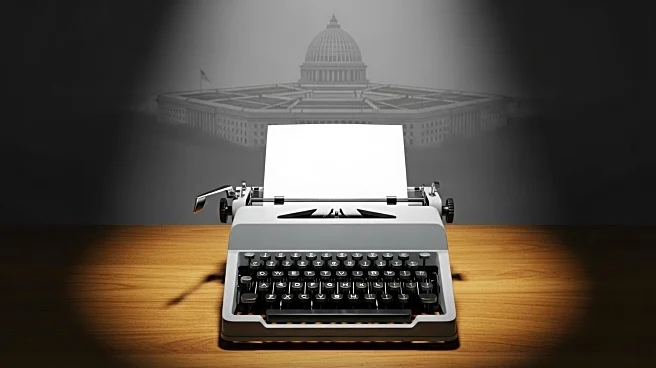What's Happening?
The Pentagon has announced new restrictions on journalists, requiring them to sign agreements not to disclose unauthorized information to maintain access to the Department of War. These changes, which limit journalists' movement within the facility, follow recent leaks and aim to protect national security. Secretary of War Pete Hegseth emphasized the need for reporters to follow rules or risk losing access. The guidelines mandate that information must be approved for release, even if unclassified. Critics, including Democratic lawmakers and the National Press Club, have denounced the policy as an attack on free speech and independent journalism.
Why It's Important?
The restrictions could significantly impact press freedom and transparency in reporting on military affairs. By controlling information access, the Pentagon may limit public understanding of military operations and policies. This move could hinder accountability and reduce scrutiny of government actions, affecting democratic principles. The policy may lead to self-censorship among journalists, impacting the quality and independence of reporting. The broader implications include potential shifts in media practices and increased government control over narratives, influencing public perception and policy discussions.
What's Next?
The new policy may face legal challenges and opposition from media organizations and civil rights groups. Democratic lawmakers have already criticized the restrictions, and further political debate is expected. The guidelines could lead to increased tensions between the press and the government, potentially affecting future access to military information. Stakeholders may advocate for revisions or reversals to protect press freedom and ensure transparency in military affairs.
Beyond the Headlines
The situation highlights ongoing tensions between national security and freedom of the press. The policy raises ethical concerns about government overreach and the balance between security and transparency. Long-term effects could include shifts in media practices and public trust in government institutions. The importance of maintaining independent journalism as a cornerstone of democracy is underscored.










